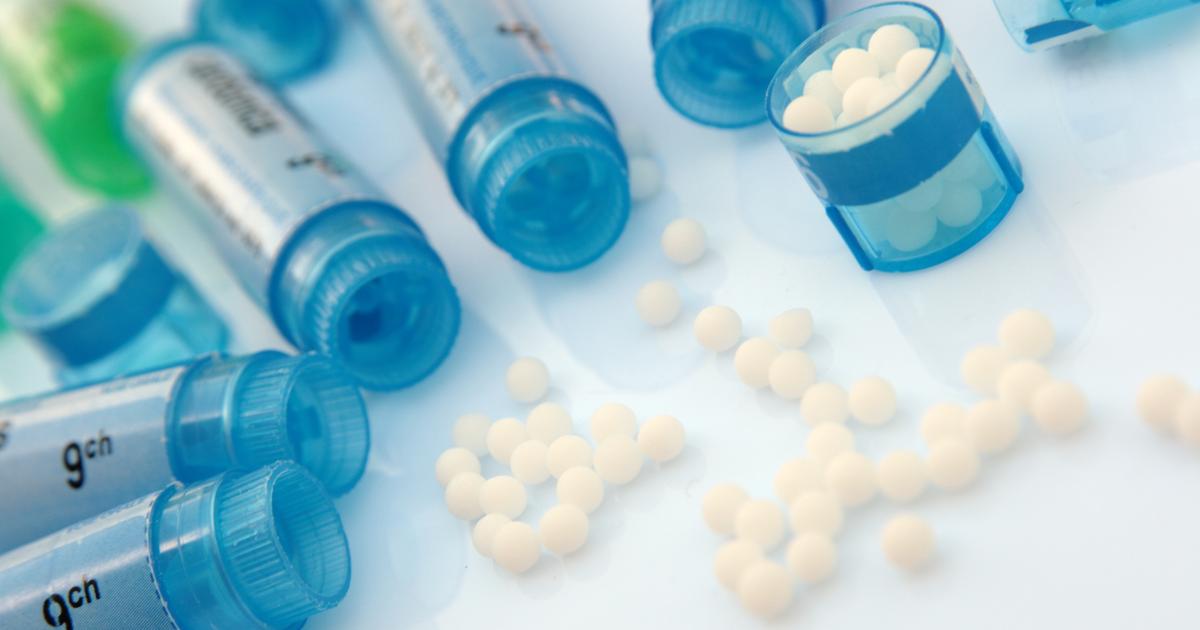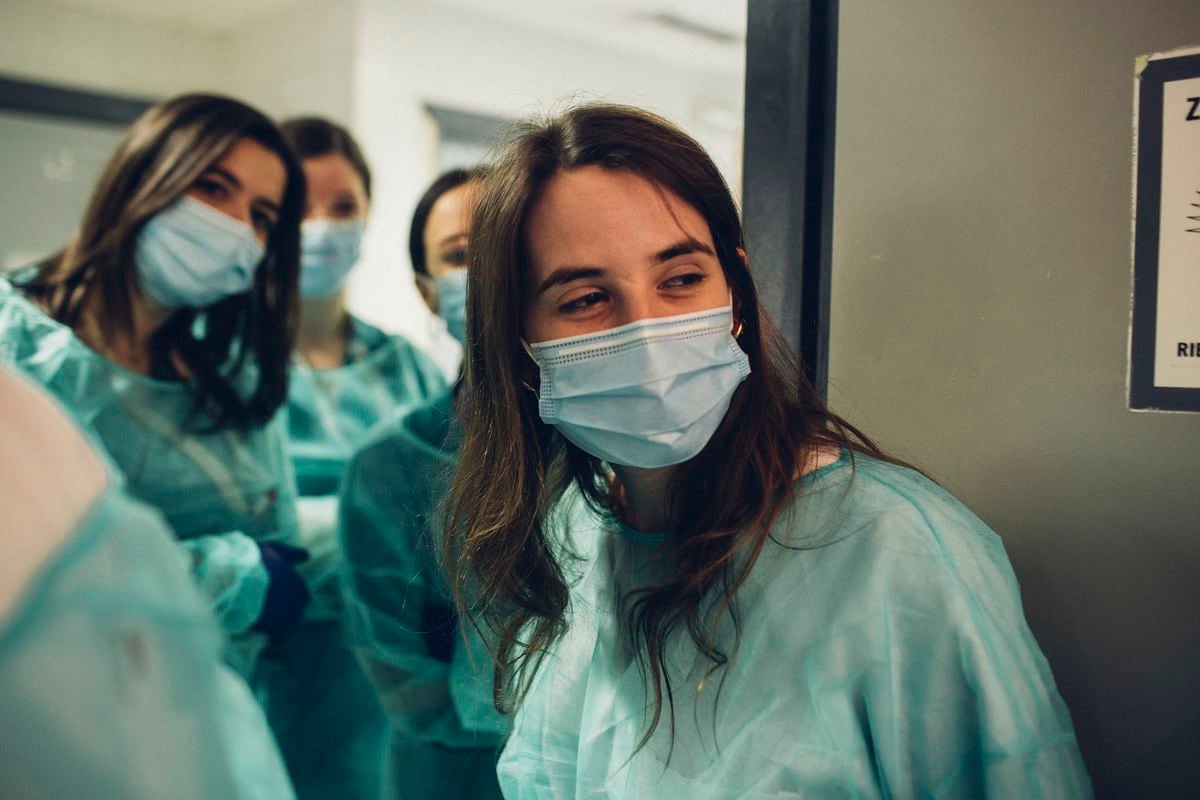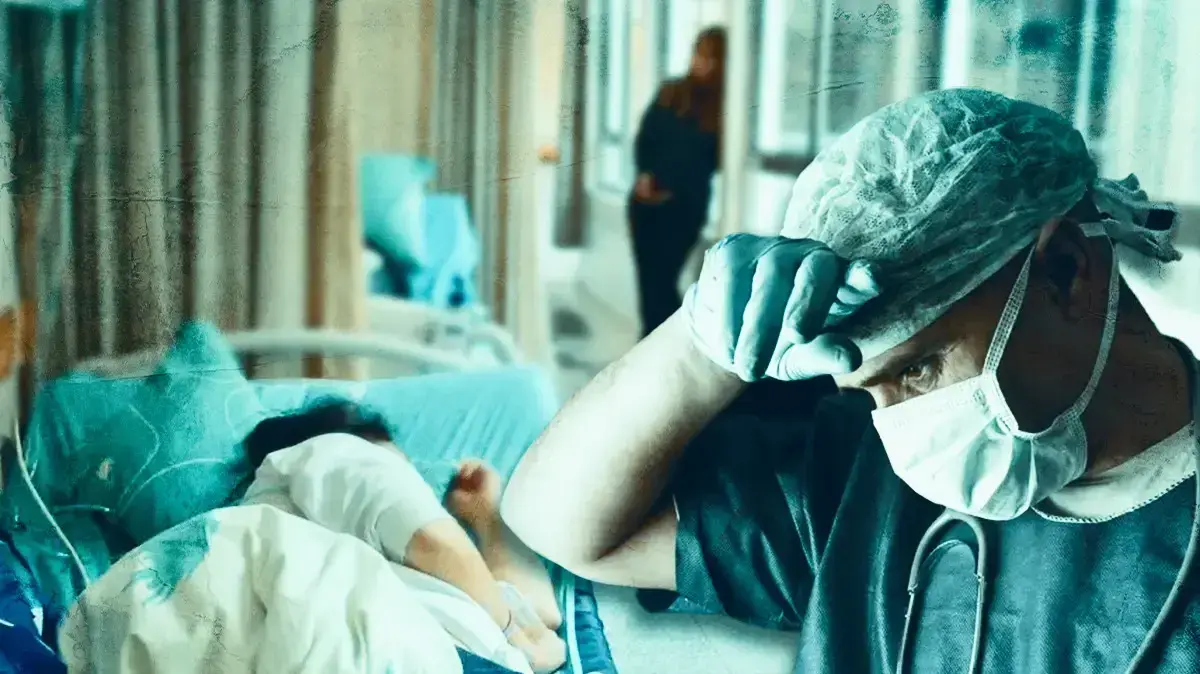Facts First: There is no strong scientific basis to say that ivermectin is effective against COVID-19.
But there is also not enough evidence, so far, to say that it does not work to treat or prevent covid-19.
The medicine, widely used in the world to combat parasites, is being included in the treatment plan for covid-19 patients by several governments in Latin America and by private doctors who recommend it prophylactically and for cases of infected people.
Some doctors in the region claim that their patients have improved by giving them the medicine and others say they take it to prevent covid-19, as they are constantly exposed to the disease.
The truth is that the medical community is divided.
“Hopefully it works.
Hopefully it will be proven, ”says Dr. Elmer Huerta, oncologist, specialist in Public Health and contributor to CNN en Español.
"But until there is scientific proof, I think it is irresponsible that governments, politicians, are promoting it with the belief that because it has no side effects it can be used by the public."
“We are using it and we have a good experience with users here in the region.
I believe that it is a safe molecule and I believe that it can help prevent the coronavirus, ”says Dr. Marco Martínez, a Colombian, a specialist in internal medicine, and who is part of the Covid del Valle Medical groups and the Covid Cali Group, who have medicated covid-19 patients with ivermectin.
In Colombia the Ministry of Health does not recommend it for the virus.
The health authorities of Venezuela, Mexico, Honduras, Nicaragua, Guatemala, El Salvador and Bolivia recommend using ivermectin for covid-19 patients within care protocols, and also some preventively.
Although there are not enough studies to be certain - those that exist are scarce, disparate and in very early stages - and organizations such as the United States Food and Drug Administration (FDA) and the Pan American Health Organization (PAHO) do not recommend taking it In Latin America, the popularity of medicine has exploded and people are buying and consuming it, some without medical supervision, something that is not recommended and can be dangerous for any medicine.
advertising
Dr. Fernando Valerio, an intensivist in San Pedro Sula, in northern Honduras, developed together with a group of doctors two protocols that were endorsed by the government of the Central American country to treat patients with covid-19 and that include ivermectin.
“Our intention was not to contradict the World Health Organization.
Our goal was to change the destiny of patients' lives, ”explains Valerio.
How did ivermectin come to be considered for covid-19?
It is a low-cost medicine that, although it is sold under prescription in most Latin American countries, it is also relatively easy to buy it in some pharmacies without a prescription.
Additionally, ivermectin has been used for years to successfully combat external and internal parasites in millions and millions of people without major side effects.
The attractiveness of ivermectin may be due in part to the challenges Latin America faces in authorizing, obtaining and distributing vaccines against COVID-19, despite the fact that several governments have closed agreements with pharmaceutical companies and others have already begun to vaccinate, although at a slow pace
Ivermectin began to be linked to the coronavirus in April 2020 with a pre-publication in an Australian scientific journal in which they reported that, by using an amount much higher than the common dose of ivermectin, the coronavirus could be prevented from entering a cellular tissue .
The problem with this study, in addition to the fact that the dose was about 50 times more than what is commonly prescribed, is that it was done in-vitro, not in tests with patients, control groups and other requirements to approve a treatment.
A later prepublication said ivermectin had apparently helped treat Covid-19 patients who required mechanical ventilation.
Ivermectin, treatment discouraged against covid-19 5:00
"None of the studies were peer-reviewed or formally published, and one of them was later withdrawn," says PAHO.
"As long as there is no higher quality evidence on the efficacy and safety of these drugs, PAHO recommends that they be used only within the framework of duly registered, approved and ethically acceptable research studies," they add.
The US National Institutes of Health (NIH) recently said that there is not enough data to say whether ivermectin helps against Covid-19.
That is, it does not claim that it works or not, but that nothing has been tested yet.
This marked a change: they went from not recommending it to having a more neutral stance.
Convalescent plasma therapy for covid-19 patients was also marked by the NIH in this category.
Based on this more neutral position of the NIH, the argument of some doctors is to prescribe it and recommend it anyway.
The risks and potential benefits
"It has minimal risk, you really don't lose anything by using it in treating those patients," says Dr. Joseph Varón, chief of the United Memorial Medical Center Hospital in Houston.
Dr. Varón and a group of doctors have formed an alliance for the care of covid patients called Front Line Covid-19 Critical Care Alliance (FLCCC) and claim, based on clinical observations, that ivermectin can be used for the early treatment of covid-19 and to prevent infection.
"I put the patients that I put in the hospital on ivermectin," said Varón in conversation with CNN.
"We don't do this as if it were a vaccine, but on the contrary, we do it as a step to help people get vaccinated."
Drug not approved for covid-19 runs out in Ecuador 3:27
The FLCCC group recently presented to the National Institutes of Health data from experiences of the clinical use of ivermectin against covid-19 in countries such as Bangladesh, India, Egypt, Peru, Brazil and the Dominican Republic, explains Varón.
“We, who are in the clinical area, see that patients are improving with ivermectin.
And I think it is unethical that half of the patients were not given this medicine that can save their lives, "says Varón regarding whether more studies are needed that require a control group, who are gives a placebo and not the drug.
Male and the FLCCC also recommend ivermectin prophylactically for health professionals who work with covid patients and for people who have been in contact with someone positive.
"However, the most important thing that viewers have to understand is that you should not take ivermectin without having discussed it with your doctor," he adds.
Valerio, from Honduras, says that at the beginning of the fight against covid-19 in his country it was difficult to carry out a controlled study for the development of protocols that include ivermectin.
"In San Pedro Sula there are only five intensivists," he explains, and says that "we looked at patients in five hospitals, we worked 20 hours a day, we cannot be under the frame waiting for all the goals to be thrown at us."
"The best laboratory is to see how patients evolve," he adds.
LOOK: What side effects can the use of ivermectin have?
80% of covid-19 cases recover on their own
(Credit: Raul Sifuentes / Getty Images)
The issue with clinical observations is that there is no control over the factors that lead to an outcome.
Dr. Huerta cites the case of a study in Bangladesh, in which doctors claimed to have "cured" 98% of the patients they treated with ivermectin and doxycycline, an antibiotic.
“More than 90% of patients with covid-19 recover spontaneously.
It is possible that the patients could have recovered without the use of these medicines, ”says Dr. Huerta.
"This window is used by people who profit from these therapies to sell them as prophylaxis," Dr. Antonio Quispe, a Peruvian epidemiologist, told CNN in an interview.
The studies that exist on ivermectin, he explains, are very disparate and do not agree on how to use the medicine, in what dose or how many hours.
Bolivia authorizes the use of ivermectin against covid-19 3:53
In Guayaquil, Ecuador, a city that was the epicenter of the pandemic in Latin America between March and April 2020, the Mayor's Office began an annual ivermectin deworming campaign this January.
“We have chosen this product.
Yes, I have chosen it because it could have a protective effect, maybe yes, maybe no, but the covid is also true, but we do not have enough studies so far, ”says Mayor Cynthia Viteri.
However, the government of Ecuador has warned that ivermectin should not be used as a treatment for COVID-19.
In Peru, it was initially included in the protocol for patient treatment, and was later withdrawn.
Currently the Ministry of Health does not recommend it as a general treatment.
But it is still used for the coronavirus.
Nor do they recommend it in Colombia, Argentina and the Dominican Republic, among others.
Why does the use of a drug for which there is insufficient evidence explode?
"The problem is the infodemic," explains Quispe.
"It generates a lot of fear in the population and this fear is taken advantage of by people who misinform."
The Peruvian epidemiologist points out that some of his colleagues prescribe ivermectin every 20 days, but he says that the drug is cleared in the body in 18 hours, meaning that there is no trace left in the blood after then.
For Malaquías López Cervantes, professor of Public Health at the Faculty of Medicine of the National Autonomous University of Mexico, that people take ivermectin even knowing that there is not enough evidence is "the product of anguish, pressure and haste that requires facing a pandemic situation ”.
“I believe that in Latin America we still have a tendency to think that there are magic solutions, that when someone begins to say that something can be useful, people take it up again and begin to generalize it.
And also that we have a medical profession not yet sufficiently used to waiting for the solid scientific elements to be established, "he told CNN.
While some in Latin America are willing to trust ivermectin without verifiable and robust scientific evidence, as vaccines arrive in the region, curiously mistrust of them has grown, studies of which have been done in hundreds of thousands of people. , specifically for covid-19, with proven results, and peer reviewed.
Ivermectin is not a "magic" medicine
Dr. Martínez, in Colombia, says that ivermectin by itself is not a solution.
"It is not a magic drug," he says.
"No, it is a helpful drug and it is a tiny part of the early intervention therapeutic process."
Also, says Martínez, it depends on the moment of the disease, and it should always be done with medical advice.
In several of the countries that recommend it, it is used in conjunction with other treatments and medicines.
Dr. Valerio explains that in Honduras the protocols developed to treat the disease include several other medications, not just ivermectin.
The study by Dr. Valerio and his colleagues was published and discussed by peers at the Coronavirus Disease Conference (ECCMID) organized in Switzerland in September 2020 by the European Society for Clinical Microbiology and Infectious Diseases (ESCMID).
LOOK: Could colchicine be the first drug that drastically changes the treatment of covid-19?
The uncertainty that has marked this first year of the pandemic has led people to seek solutions, often in any way and at any cost, without following medical recommendations.
"It has already happened with the issue of chlorine dioxide," warns Pía Machuca, infectologist and coordinator of the Commission for Emerging and Endemic Diseases of the Argentine Society of Infectious Diseases, "you have to be careful and be able to understand a little that for now the use for ivermectin is as an antiparasitic.
For now, for what covid remains to be seen ”.
Chlorine dioxide, a substance used primarily to disinfect drinking water supplies, has been touted as a treatment for COVID-19 even though there is not a single study to show its effectiveness.
In Argentina, a 5-year-old boy died after being supplied "preventively" against the coronavirus.
In the United States, the Genesis II Church of Health and Healing was selling a "magic bullet" to treat the virus that included chlorine dioxide until a federal court issued an emergency restraining order to prevent the group from continuing to distribute that product.
The chemical and social effects of ivermectin
Like all medications, ivermectin can have adverse effects, especially if recommended doses are exceeded.
The most severe are neurotoxicity, gastrointestinal problems, allergies due to intoxication and urticaria, among others.
Vomiting, severe diarrhea, muscle pain, fatigue, and headache may also occur.
Those are chemical effects, but there are others that are socially very harmful to the pandemic.
By falsely believing that they are protected by ivermectin, people can let their guard down and neglect hand washing, physical distancing, mask use, and other measures.
Or worse, they can take ivermectin and then purposely put themselves at risk thinking that nothing is going to happen to them.
Archive image.
(Credit: Hector Vivas / Getty Images)
What is needed to have more evidence of ivermectin against covid-19?
Pharmacists should be interested in doing studies on ivermectin, says Dr. Martinez.
“Studying costs a lot of money.
How good that they were interested in that molecule so that they would get us out of the doubt that everyone has ”.
There are currently more than 100 studies in progress that seek to show whether ivermectin could prove to be useful for covid-19.
These studies do not necessarily endorse the effectiveness of the drug, but they do seek evidence.
Dr. Valerio trusts that international organizations will change their position on ivermectin, "I think time will prove us right."
Paradoxically, the massive use of ivermectin could hinder a study that could lead to confirm or not its efficacy.
According to an article in the journal Nature, the popularity of the drug makes it difficult to find volunteers who have not already taken it, something necessary to check if it works in a clinical study, and also they are not “documenting the possible side effects of the medicine, which it means that valuable security data is being lost. "
LOOK: Colchicine, ivermectin, plitidepsin: what we know about each of these drugs
What if I want to take it?
People keep buying and taking ivermectin, despite everything.
That too is a fact that cannot be denied and that clinicians must address.
"I would explain to my patient that there is no evidence either for or against," says Dr. Huerta about this scenario.
With information from Carolina Melo, Ignacio Grimaldi and Michael Roa of CNN en Español.










/cloudfront-eu-central-1.images.arcpublishing.com/prisa/2C5HI6YHNFHDLJSBNWHOIAS2AE.jpeg)



